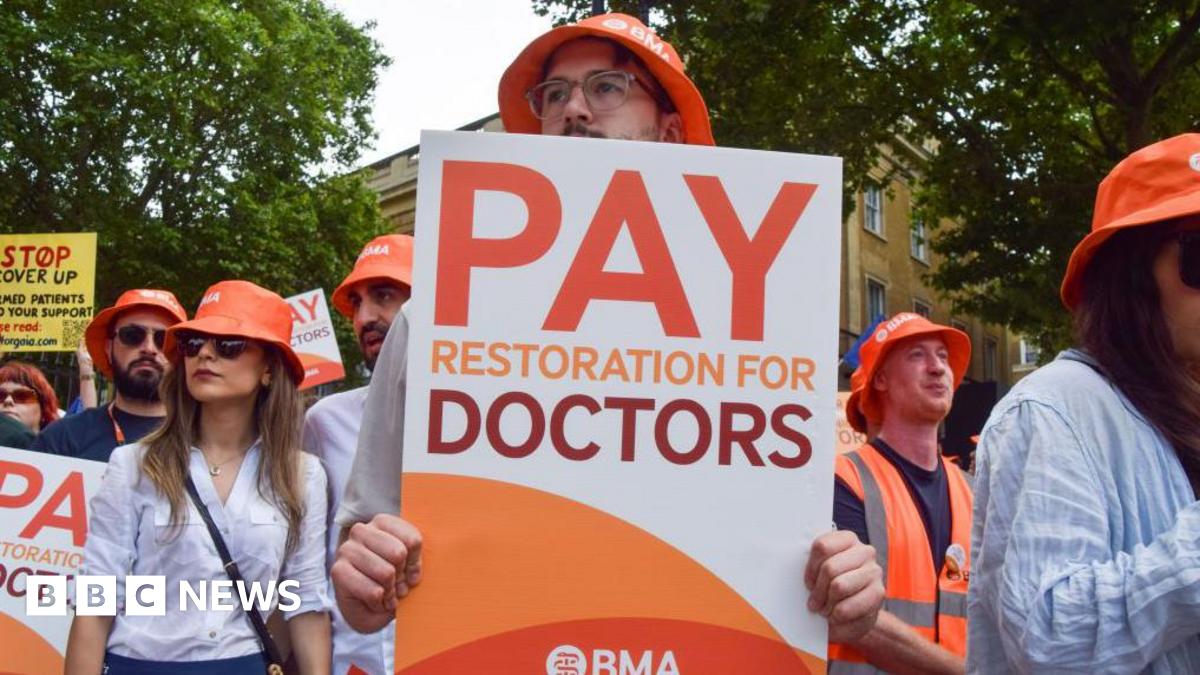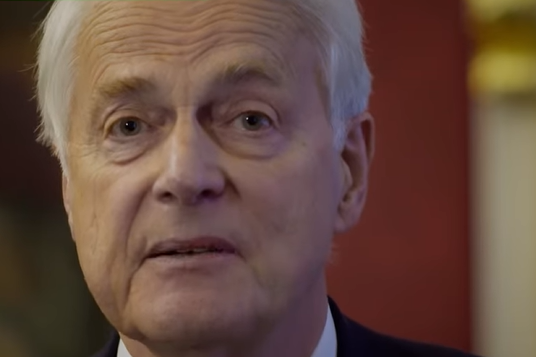Cowper’s Cut 385: The generation game

I understand that ‘Cut’ readers have been enjoying the BMA resident doctors committee’s campaign for Full Pay Restoration almost as much as I have.
And why not? If we can’t take simple, traditional pleasure in a historical re-enactment society’s attempt to re-fight medical pay negotiations from 2008, then really, what hope is there for any of us?
Even if 2008 is almost a generation ago.
‘No wealth creation, unless it’s for us!’
One must have a heart of stone not to laugh at the residents’ leadership. Members of the ‘Doctors Vote’ entryist movement that now sits firmly in control of BMA Council, these Doctors Voters are Corbynistas to a woman and man, which is all very well if you like that sort of thing.
It means that they are firmly against wealth creation, except when it comes to themselves. Nothing is too good for the workers, Comrade!
Alas, they have, as I mentioned in last week’s ‘Cut’, discovered that their mandate for strike action is not quite what they’d have hoped. There was a 90% vote for industrial action, but it was on a 55% turnout: previous campaigns for strikes saw vote turnouts of over 70%.
So the residents’ leaders face uncertain levels of internal support if they do take the planned industrial action next week.
More to the point, as I noted last week, they start this campaign for industrial action in significant deficit of public opinion. So that’s shaky internal support, married to scant public support.
Nor can they count on the tacit or de facto support of NHS leaders seen during the pre-election strikes, as NHS England’s recently-appointed boss Sir James Mackey pointed out to Health Service Journal and the Sunday Times.
Mackey told HSJ’s Nick Kituno, “in past disputes, we have allowed the BMA to determine which care can be carried out during resident doctors’ strikes. They have said the default approach would be to offer a Christmas service and that trusts would have to negotiate derogations from that.
“Often those derogations were refused, and trusts had to significantly curtail activity. It also became clear quite quickly that application for derogation was futile so colleagues stopped doing that.
“I do not accept it is necessary or acceptable to take this approach. If a diagnostic or outpatient clinic, or an elective procedure, has been has been booked, it should go ahead unless the BMA can present a credible argument as to why it was clinically necessary, but now is not.
“NHS local leaders, with our support, will decide what care is urgent and must be carried out, not the BMA.”
If I were travelling back in time to 2008, I wouldn’t start from here.

As such, it was not very surprising that the media read-out following the meeting between the residents’ leadership and Health But Social Care Secretary Wes Streeting on Thursday was remarkably cordial and collegiate. Mr Streeting had trailed the prospect of student loan forgiveness to the Grauniad, and The Times’ Eleanor Hayward got other key parts of the post-event read-out.
So, will they strike? It’s hard to read. Mr Streeting is still playing on reasonable mode, by offering other improvements. Set against this, the sunk cost fallacy is a powerful addiction, and the political left is adorably notable for its factionalism. They may well get some positive movements on working conditions; student loan forgiveness; or commuting future pension rights for higher immediate salary: it will not be ‘Full Pay Restoration’.
That will leave their leadership open to charges of betraying the movement, from those fellow Doctors Voter residents who choose not to see that their position is far weaker than they would have hoped.
And Corbynistas are not primarily known for their pragmatism.
Leng Review to retitle medical associates as assistants

Royal College of Medicine President and former NICE boss Gillian Leng offered her sympathies to the unhappy residents in this Times interview, identifying “resentment and hostility” felt by some younger doctors towards other healthcare staff and suggesting that anger about NHS plans to expand the use of physician associates (PAs) has contributed to “general unhappiness”.

The interview was in connection to her review of the medical associates as roles for the DHBSC, which was published on Wednesday.
The Leng Review recommends banning PAs from diagnosing patients; renaming them “assistants”; and ensuring they wear uniforms that will distinguish them from doctors. The Review rightly says that “it’s the staff who deliver care, who make decisions, who use technology, drugs and interventions wisely and who lead teams. It feels trite to say that “it’s all about the people”, but it is … (NHS) highly motivated staff have been essential to its success but, in the post-pandemic exhaustion, some of this goodwill has been lost, with many choosing to leave or retire”.
The nail is again hit squarely on the head where Leng writes, “I was struck by the fundamentally unsatisfactory way in which postgraduate doctors are now trained. The one in two rotas that I experienced as a houseman were clearly unsafe and change was needed, but now all sense of teamwork and mentorship in medicine seems to have been lost, with residents often feeling isolated and unsupported.
“Their shift patterns and rotations are not just challenging for personal reasons, they also do not provide time to build important workplace relationships. Instead of training doctors as leaders of the future, the approach seems to be one of processing widgets in an assembly line.”
The Review’s list of recommendations are thoroughly sensible as an approach that could bring a necessary and timely de-escalation to the movement.
Leng told The Times’ Eleanor Hayward that during her research, she had been struck by the poor working conditions; shortage of secure training posts and next-step jobs; and frequent workplace disruption of young doctors and the contrast with PAs.
Resident doctors face “lengthy training, antisocial hours and numerous exams … It’s fair enough that doctors are unhappy about the way their training works. It’s like being a widget in a factory. You don’t have much control where you move around. You are put on a conveyor belt”.
NHSE: from four letters to three
In one of his set-piece NHS Confederation speeches, NHS Commissioning Board chief executive Sir David Nicholson quoted the old ‘write three letters’ management approach/axiom/gag of advice from a departing chief executive to their successor.
Each of these three letters is for the new CE to open in a time of crisis: the first letter of the three reads, ‘blame me!’ (Topically, the second letter reads, ‘restructure the organisation’; predictively, the third letter reads, ‘write your successor three letters’.)

NHS England’s new leadership publicly opened the first of its three letters this week, as the ‘Freedom To Speak Up’ annual report to the board highlighted that as regards whistleblowers, protected disclosure makers and people whose working relationships have broken down, the English NHS’s management and HR “processes are really poor”, in the words of Sir James Mackey, as reported by HSJ.
This is not much of a secret within and around the service, but it is creditable that it got admitted out loud, in The Real World.

This was in the same week where legal patient safety expert Sir Robert Francis (current interim chair of the Infected Blood Compensation Authority) told the Whistleblowers UK conference last week that the NHS still lacked a “system that gives proper justice to those who have been victimised” after raising concerns.
“There remain terrible issues: no-one is being held accountable. We will get nowhere on this issue unless there is a consensus to make it perfectly normal, and indeed expected, to speak up if you are worried about something. Recruitment and training have to be on the basis of these values.
“When things go wrong people need to say that and take responsibility. What happens when they don’t do that? Very little, I’m afraid. The behaviour on the part of some senior people is shocking. They don’t end up being disciplined. That is something that needs to change.”
It would be nice to feel that this will come to pass, but it will require a credible, independent and well-resourced mechanism with real teeth to make it happen. I wonder when Sir Robert might be free to lead that?
Thank you to subscribers
It’s now exactly four years since I moved ‘Cowper’s Cut’ here, behind a paywall to make its weekly production viable. And it’s just over eight years since ‘Cut’ was launched in HSJ. Time, eh? Great healer; lousy beautician.
Renewals by the original subscribers remain at a gratifyingly near-total level - allowing for retirements and career changes.
I’m grateful to all of you for choosing to put your money where my mouth is, so I’ve once again held subscription prices to thank you.
This means that ‘Cowper’s Cut’ is now several, if not many, percent cheaper in real terms. (I know: my marketing slogans are the best.) While I can’t keep doing this forever, the good news is that I won’t be launching a campaign for Full Pay Restoration, because I’m aware that isn’t how the real world works.
Recommended and required reading
Sally Gainsbury of the Nuffield Trust on why becoming an engine for economic growth won’t be a piece of cake for the NHS.
Helen Buckingham has this pertinent comment piece in HSJ on why politicians would be better-served by taking evidenced and sensible approaches to changes to hospital care.
Patients from the most deprived areas of England face longer waits for NHS treatment and make up a higher proportion of those waiting for care, The Grauniad reports.
Decent Economist feature on cancer treatment.
Shaun Lintern in the Sunday Times on the black maternity quality scandal.
Pulse reports that the BMA GP committee may re-enter dispute with the Government over the unimportant 10-Year Plan.
Centre for Policy Studies boss Robert Colvile’s piece on striking doctors for the Sunday Times is worth a look.




